-
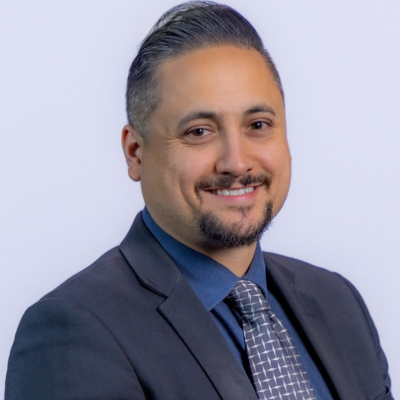 Andreas BleichAssistant Secretary – Data, Systems and Information Management , Department of Infrastructure, Transport, Regional Development, Communications and the Arts
Andreas BleichAssistant Secretary – Data, Systems and Information Management , Department of Infrastructure, Transport, Regional Development, Communications and the ArtsAndreas Bleich is the Data Champion for the Department of Infrastructure, Transport, Regional Development, Communications and the Arts and Assistant Secretary of the Data, Systems & Information Management Branch. Andreas has over a decade of experience in different Departments in the Australian Public Service and has had the privilege of working on exciting projects such as Free Trade Agreement negotiations, Pharmaceutical Benefits Scheme compensation cases, the establishment of the High Speed Rail Authority and the review of Infrastructure Australia and Government response, which included legislative changes. Andreas has been awarded with 2 Australia Day awards and 3 Secretary’s awards from different Departments.
-
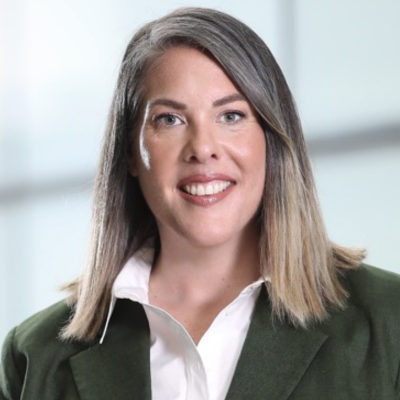 Katherine BoiciucBoard Member, Bureau of Health Information
Katherine BoiciucBoard Member, Bureau of Health InformationSession: PANEL DISCUSSION: How can the public service ensure reliability and safety in AI systems?
Katherine Boiciuc, also known as KB, sits on the boards of NSW Bureau of Health Information and Infoxchange (Australia’s largest technology non for profit). KB has more than two decades experience and is one of Australia’s go to professionals on tech. She’s led global teams and Telstra and more recently has been advising Australia’s next generation of CTOs as EY’s Chief Technology and Innovation Officer for the Oceania region.
KB holds an MBA and Master of Leadership from Deakin University, is a graduate from of the London Business School where she studied Managing the Company of the Future and is an accredited Futurist with the Institute for the Future in California.
-
 Dan BridgmanSenior Manager Data Science, Transport for NSW
Dan BridgmanSenior Manager Data Science, Transport for NSWDan Bridgman is the Senior Manager Data Science at Transport for NSW. He leads a team of Data Scientists and Engineers to build diverse data science and AI applications within the Advanced Analytics & Insights branch in TfNSW. Over the past few years, Dan has delivered numerous AI and data science projects, including patronage forecasting models for public transport across NSW, a variety of computer vision projects using Transport assets, an AI Assurance framework for use across Transport, and more recently championing the effective use, development & governance of Generative AI at TfNSW.
Dan’s experience spans 19 years of data across media, retail, software, banking, consultancy and now transport and is passionate at leading teams to deliver effective AI products and solutions for the greater good.
-
 Ben BurgeChairman, MicroTau
Ben BurgeChairman, MicroTauSession: LIVE FIRESIDE CHAT: Lessons from the private sector with special guest Ben Burge, Chairman, MicroTau
Ben is Member of the Team at Telstra. He has been at the helm of epic and humiliating failures across six industries and three continents, in the midst of which he picked fights with bullies, lost (and then rediscovered) his faith in democracy, and occasionally got lucky in the all-consuming religion of start-up and early-stage growth. While Ben is fascinated by the prospect of interplanetary missions, he would like the earth to remain habitable for generations to come.
-
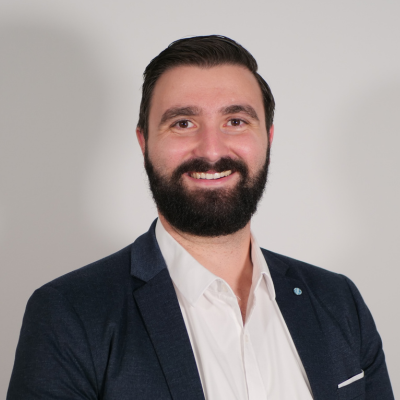 Luca CarusoBusiness Applications (Dynamics 365) Practice Manager, SOCO
Luca CarusoBusiness Applications (Dynamics 365) Practice Manager, SOCOLuca is the Business Applications Practice Manager at SOCO, focusing on solutions in Microsoft Dynamics 365 and the Power Platform, with experience in leveraging AI to deliver highly efficient outcomes. With over a decade of experience, his career has spanned roles in the Queensland Government, Federal Government, and various client-serving organisations. These roles have provided him with a deep understanding of digital solutions and their implementation across diverse industries.
Luca’s strength lies in transforming outdated and inefficient business processes into streamlined, customer-centric journeys. By leveraging the Power Platform, he collaborates closely with clients to enhance customer outcomes and drive business efficiencies. His ability to integrate these advanced tools ensures that organisations not only achieve their digital goals but also significantly improve their operational performance.
As a trusted leader at SOCO, Luca’s strategic vision and adaptability position him as the go-to partner for organisations seeking to elevate their digital capabilities and realise transformative success. His leadership fosters confidence, guiding businesses with precision and excellence toward their digital aspirations.
-
 Distinguished Professor Fang ChenExecutive Director – UTS Data Science Institute, UTS
Distinguished Professor Fang ChenExecutive Director – UTS Data Science Institute, UTSDistinguished Professor Fang Chen is the Executive Director at the UTS Data Science Institute. She is an award-winning, internationally recognised leader in AI and data science. Her expertise lies in developing and deploying innovative data-driven solutions to solve complex problems within large-scale networks, encompassing a variety of sectors including transportation, water, energy, health, agriculture, telecommunications, education, health, real estate and more. With her vast experience in industry, government, and academia, Fang excels in developing strategies for innovation, shaping digital transformation initiatives, and creating world-class R&D for industries and governments. She is also a staunch proponent of ethical and human-centred AI practices.
Distinguished Professor Chen actively contributes her expertise to various advisory committees and expert panels, such as the Industry Science and Innovation Australia Board, the inaugural NSW Government AI Review Committee, and the expert panel of the Singapore National Research Foundation (NRF). She also holds positions on the ITS Australia Board, and several startup company boards, and is a venture partner at a venture capital fund.
Distinguished Professor Chen won the "Oscar" of Australian Science – the Australian Museum Eureka Prize 2018 for Excellence in Data Science. She is the "Water Professional of the Year", awarded by the Australian Water Association in 2016. In 2021, she won the NSW Premier's Prize of Science and Engineering and the Australia and New Zealand "Women in AI" Award in Infrastructure.
She leads multidisciplinary teams of experts, together with whom she has won major scientific and industry awards on the national level. These include the Intelligent Transport Systems Australia National Award 2014, 2015, and 2018, the NSW iAwards 2017 and 2023, the VIC iAwards 2019 and 2020, and the National Award and NSW "Research and Innovation Award" 2018 and 2022 from the Australian Water Association.
Distinguished Professor Chen has forged a career centred on innovation, crafting digital transformation strategies, and leading their execution with both passion and leadership. She brings a wealth of global experience, having collaborated with over 100 entities across North America, Europe, and Asia. Her work covers a wide range of scenarios, from early-stage research and development to product development and deployment. Her exceptional ability to connect customer needs with innovative technological solutions has generated significant business value through innovation.
Distinguished Professor Chen has produced groundbreaking research, as demonstrated by her 400+ peer-reviewed publications in the fields of science and engineering, along with authoring several highly influential books. Moreover, she has filed 30+ patents across Australia, the US, Canada, Europe, Japan, Korea, Mexico, and China.
-
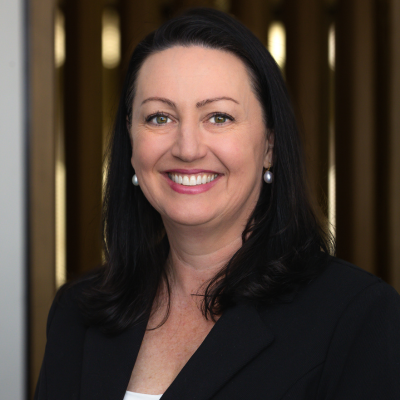 Kylie De CourteneyManaging Director, NSW Telco Authority
Kylie De CourteneyManaging Director, NSW Telco AuthoritySession: Opening remarks from the Chair
Kylie De Courteney is Managing Director of NSW Telco Authority, which manages and operates the Public Safety Network to deliver communications for frontline responders.
Leading a $1.5 billion portfolio of NSW Government connectivity projects, Kylie is committed to bridging the digital divide to address connectivity challenges, digital transformation of government and customer-centric service.
Prior to joining NSW Telco Authority, Kylie served as the Chief Customer Officer and Chief Digital Officer at Service NSW.
-
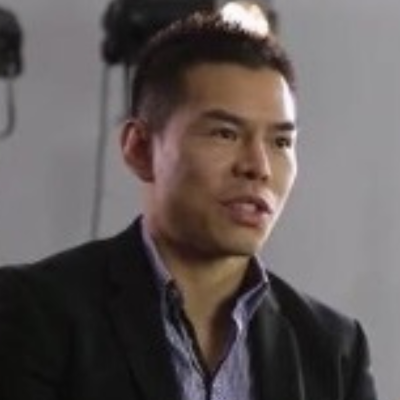 Dr Tom GaoChief Technology and Digital Services Officer, City of Sydney
Dr Tom GaoChief Technology and Digital Services Officer, City of SydneySession: PANEL DISCUSSION: How can government embed human-centered values in AI development?
Tom is a seasoned digital and technology leader with extensive experience in project and line management across digital and Microsoft platforms. With a track record of success in both startup and enterprise environments, he excels in leading teams to deliver complex IT-enabled change projects while effectively engaging stakeholders.
-
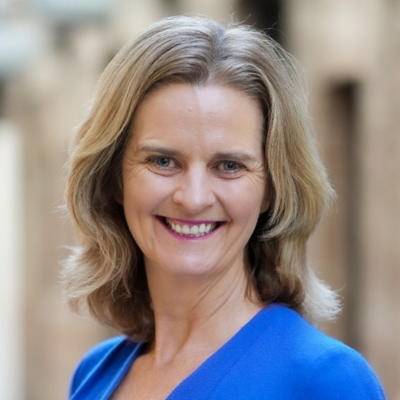 Susan GibsonHead of Data Analytics and AI, University of Technology Sydney
Susan GibsonHead of Data Analytics and AI, University of Technology SydneySession: Opening remarks from the Chair
Session: PANEL DISCUSSION: How can the public service ensure reliability and safety in AI systems?
Susan is a transformational leader who has over 20 years of experience developing and executing digital, data and analytics, and AI strategies. She ensures her team continue to be at the forefront of technology whilst ensuring strategic alignment, revenue generation and operational efficiency gains. Recently she has been responsible for leading the implementation of both predictive and generative AI within the operations of the university. This involved establishing responsible AI practices, fostering AI fluency and overseeing the technological, data and organisational changes necessary to ensure successful adoption.
-
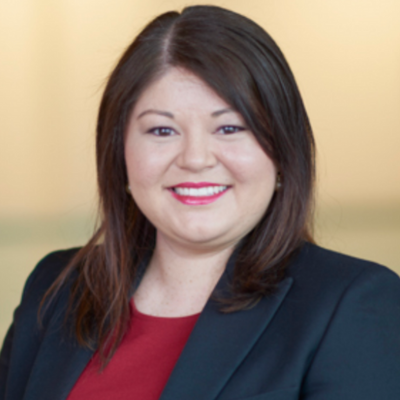 Christina GravesSpecial Counsel, Clayton Utz
Christina GravesSpecial Counsel, Clayton UtzSession: Ensuring legal and regulatory compliance in public sector data management
Christina Graves is committed to providing clients with pragmatic solutions to complex and sensitive data management challenges, while balancing regulatory compliance and business, operational and reputational risks.
In addition to this work, she has a strong interest in administrative law and enjoy supporting clients through administrative decision-making and subsequent merits review processes.
Christina has also been independently recognised by Best Lawyers as a Lawyer of the Year 2023 in the Privacy and Data Security law category.
-
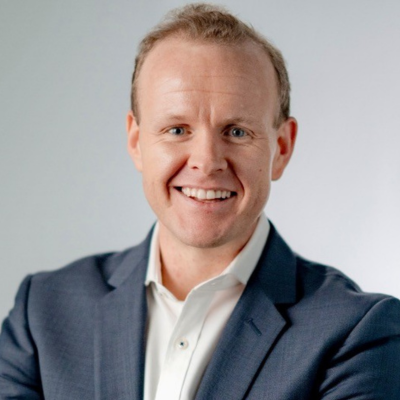 Lieutenant Colonel Adam J. HepworthTechnical Director - Artificial Intelligence, Australian Army
Lieutenant Colonel Adam J. HepworthTechnical Director - Artificial Intelligence, Australian ArmySession: PANEL DISCUSSION: How can the public service ensure reliability and safety in AI systems?
Lieutenant Colonel Adam Hepworth leads exploration of Artificial Intelligence within the Army’s Robotic and Autonomous Systems Implementation and Coordination Office (RICO). Adam’s portfolio includes human-cognitive augmentation, autonomous systems, AI-enabled decision-making, and human-machine teaming and swarming. Adam holds a Bachelor of Science in Mathematics from the University of New South Wales, a Master of Logistics and Supply Chain Management from the University of South Australia, a Graduate Diploma in Scientific Computation from the Naval Postgraduate School, a Master of Science in Operations Research from the Naval Postgraduate School, and a Doctor of Philosophy (PhD) in Computer Science from the University of New South Wales.
Adam was the 2022 Chief of Army Scholar at the Australian Army Research Centre and is presently a Visiting Fellow at the University of New South Wales, resident in the School of Systems and Computing. His current research contributes to swarm shepherding for human-swarm teaming, activity recognition and behaviour prediction, and the design of artificial intelligence systems.
-
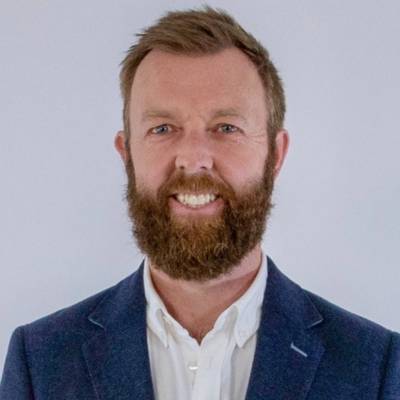 Mark HiggsExecutive Director – Digital Channels, NSW Department of Customer Service
Mark HiggsExecutive Director – Digital Channels, NSW Department of Customer ServiceMark Higgs leads the NSW Government digital channels team, focusing on creating customer-centric digital experiences. He oversees the OneCX program, collaborating with 10 NSW Government portfolios and over 400 websites to establish nsw.gov.au as the primary source of information for citizens. This initiative is supported by innovations in artificial intelligence, machine learning, personalisation, and headless content management.
Before joining the public service in 2015, Mark managed several award-winning engagement, communications, and digital projects for global brands such as Vodafone, Nestlé, nudie, Commonwealth Bank, Woolworths, Weet-Bix, ING Direct, and the Palm Jumeirah Dubai.
-
 Zafar IssadeenManager - Business Information and Intelligence, Level Crossing Removal Project
Zafar IssadeenManager - Business Information and Intelligence, Level Crossing Removal ProjectZafar is a business information and intelligence executive with extensive experience in records management, information management, technology training, knowledge management, information security, and analytics. Currently, he oversees these areas at the Level Crossing Removals Project (LXRP) in Victoria and lectures in Business Intelligence at La Trobe University. Zafar is passionate about leveraging technology to improve operational efficiency and is currently leading the implementation of Azure's Open AI technology to develop a chatbot for LXRP’s business operation.
Prior to his current role, Zafar held positions at KPMG in Identity Management and IT Audit Assurance and served as the Director of Delivery for the APAC and EMEA regions at INEIGHT. His expertise spans across developing strategic initiatives and driving technology adoption to enhance business performance.
-
 Bianca JordaanChief Digital and Information Officer, NSW Department of Planning and Environment
Bianca JordaanChief Digital and Information Officer, NSW Department of Planning and Environment -
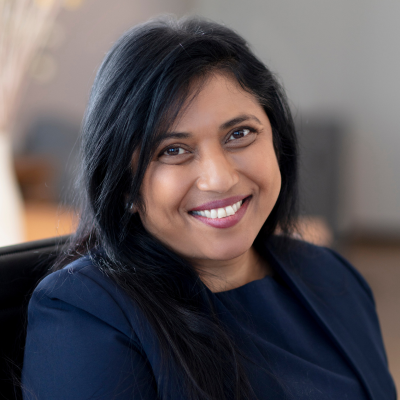 Professor Allison KealyDirector of the Innovative Planet Research Institute, Swinburne University of Technology
Professor Allison KealyDirector of the Innovative Planet Research Institute, Swinburne University of TechnologyProfessor Allison Kealy is the Director of the Innovative Planet Research Institute at Swinburne University of Technology, Melbourne, Australia. Prior to this Allison was the Executive Director Surveying and Spatial within the Victorian Department of Transport and Planning. She has also held academic positions in Geodesy and Satellite Positioning at RMIT and Melbourne Universities and was Acting Chief Research Officer in the SmartSAT CRC and Deputy Director of RMIT’s Defence Research Centre. Allison is a Board Member of Consulting Surveyors Victoria, and a Fellow of the International Association of Geodesy (IAG), and the Royal Institute of Navigation. Allison holds a BSc in Land Surveying from the University of the West Indies, Trinidad and a PhD in Satellite Navigation from the University of Newcastle upon Tyne, UK. Her technical expertise and interests include resilient and quantum PNT, sensor fusion, and cooperative localisation for automated platforms including drones, land vehicles, and stratospheric balloons.
-
 Dr Michael KolloChief Executive Officer, Evolved AI
Dr Michael KolloChief Executive Officer, Evolved AISession: Masterclass A: How to leverage generative AI for public sector innovation
Session: Shifting horizons: The public sector implications of generative AI's dynamic evolution
An executive business leader with global financial services and deep technology management experience Dr. Kollo has deep subject matter expertise in quantitative finance, asset allocation, portfolio construction and risk management, as well as economic forecasting.
Dr. Kollo is an analytical and thoughtful people leader with a passion for mentoring and bringing aligning to high performing teams.
-
 Simon KrissChief AI Officer, simonkriss.ai
Simon KrissChief AI Officer, simonkriss.aiSession: Legislative complaint AI adoption methodologies
Simon Kriss, Chief AI Officer at simonkriss.ai is a sought-after keynote speaker and consultant. He is author of “The AI Empowered Customer Experience”, hosts podcasts on CX and AI, and was named in the 2024 CX Top 50 Global Influencers to follow.
Based in Melbourne Australia, Simon is a CX and AI futurologist who presents to audiences around the world and works with company boards and C-suite executives to help them better understand where the AI opportunities lie for their businesses, and how they can get started with effective and ethical AI adoption.
He is a divergent thinker who creates unique ideas and solutions, often finding the hidden opportunities for businesses to innovate now and win in the future.
-
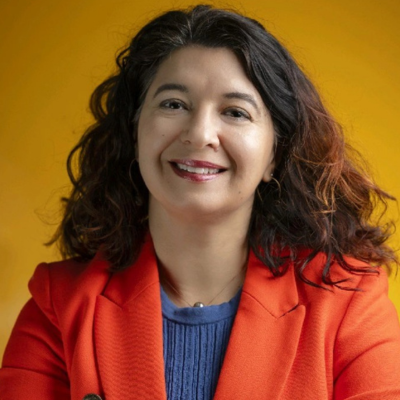 Olga LysenkoDirector - Enterprise Data Strategy, Governance and Management, Department of Climate Change, Energy, the Environment and Water
Olga LysenkoDirector - Enterprise Data Strategy, Governance and Management, Department of Climate Change, Energy, the Environment and Water -
 Jennifer MulvenyDirector, Government Relations, Asia-Pacific, Adobe
Jennifer MulvenyDirector, Government Relations, Asia-Pacific, AdobeSession: Trust in the age of AI
Experienced Director of Government Relations and public policy working in both Washington D.C and the Asia-Pacific region supporting Fortune 500 technology companies. Skilled in creating successful technology policy strategies to help achieve targeted business objectives. Specific focus on international trade, AI and emerging tech, privacy and intellectual property. Strong skills in coalition building, public speaking and writing. M.A., in International Relations from The George Washington University. Completed Australia Institute of Company Directors (AICD) company directors course.
-
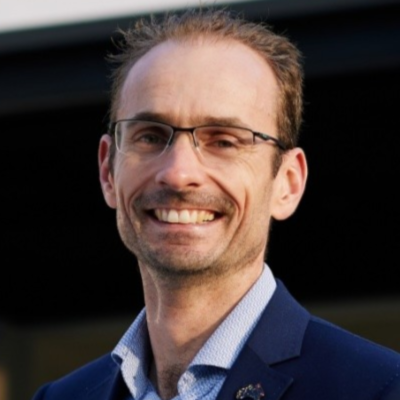 Anthony MurfettHead of Division – Technology and Digital, Department of Industry, Science and Resources
Anthony MurfettHead of Division – Technology and Digital, Department of Industry, Science and ResourcesSession: Artificial Intelligence, the economy and the role of the Australian public sector
Anthony Murfett is the Head of Division for Technology and Digital within the Department of Industry, Science and Resources. The Division is responsible for providing policy advice to government, delivering programs and engaging domestically and internationally on enabling and critical technologies as well as the digitization of the economy. Current priorities include providing advice on the safe and responsible use of AI (including leading the government’s interim response on this issue), robotics and automation, the role of critical technologies to support economic security, as well as the responsible use of these technologies.
Previously, Anthony was the inaugural Deputy Head of the Australian Space Agency, where he had oversight of the establishment of the Agency, as well as strategy, policy and day-to-day operations. Anthony has also worked as Minister Counsellor, Industry, Science and Education at the Australian Embassy in Washington DC and as General Manager of the Growth Centres Branch within the Department of Industry, Innovation and Science in Canberra.
-
 Dr Jessie NghiemData Science Lead, Energy Safe Victoria
Dr Jessie NghiemData Science Lead, Energy Safe VictoriaSession: PANEL DISCUSSION: How can the public service ensure reliability and safety in AI systems?
Dr. Jessie Nghiem currently leads the Data Science team at Energy Safe Victoria, a state regulator for electricity and gas safety. She collaborates with research teams from various universities, CSIRO, and consulting firms to create impactful solutions for community safety.
Born and raised in Vietnam, she has lived and worked in five different countries before making Australia her home. Dr. Jessie Nghiem holds a PhD in Computer Science from Monash University and has over 15 years of experience in data analytics across universities, banking, finance, retail, and government sectors.
Outside of work, she stays busy with her two preschoolers, enjoys cooking healthy meals, and practices yoga.
-
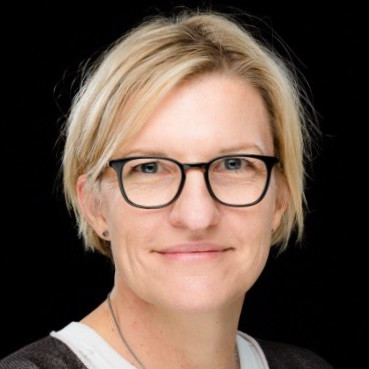 Rebecca OstergaardChief Digital Officer, CSIRO
Rebecca OstergaardChief Digital Officer, CSIRO -
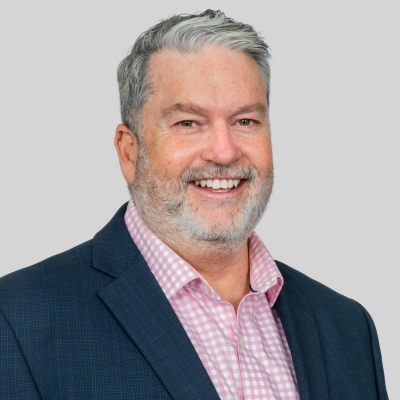 Marc PelusiA/Director Service Delivery, End User Computing, Web and Application Development, Sydney Local Health District
Marc PelusiA/Director Service Delivery, End User Computing, Web and Application Development, Sydney Local Health DistrictMarc Pelusi is a distinguished digital health portfolio director with over two decades of public sector experience, primarily in health and education. Currently serving as Acting Director of Service Delivery End User Computing, Web, and Application Development at Sydney Local Health District, Marc leads significant digital projects integrating advanced technologies like Azure AI. His leadership has been pivotal in driving numerous innovative healthcare solutions. Marc’s blend of technical expertise and empathetic leadership continues to advance digital health, making him a key contributor to the sector's progress.
-
 Rob SewellChief Information Officer, nbn Australia
Rob SewellChief Information Officer, nbn AustraliaSession: PANEL DISCUSSION: How can government embed human-centered values in AI development?
Rob joined NBN Co in February 2023 as Chief Information Officer, bringing significant experience in the international telecommunications sector, notably in technology strategy and transformation. Rob is also the Executive Sponsor of NBN Co’s Culture Diversity network.
Prior to joining NBN Co, Rob was with Maxis in Malaysia, leading technology strategy and digital transformation. And before that, seven years as the Chief Information Officer and Head of Network Planning with Indian mobile network operator Aircel and, in Australia, over 17 years at Telstra in a range of roles, including Director of Architecture.
-
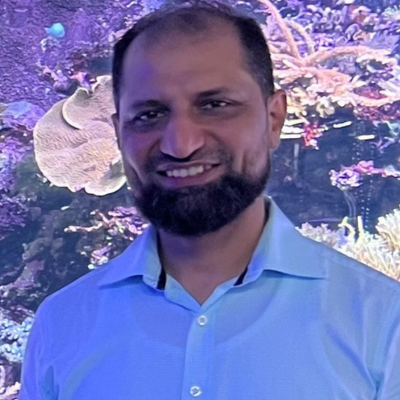 Dr Kamran ShafiManager, Data Analytics & AI, Australian Institute of Marine Science
Dr Kamran ShafiManager, Data Analytics & AI, Australian Institute of Marine ScienceSession: PANEL DISCUSSION: How can government embed human-centered values in AI development?
Kamran Shafi holds a PhD in computational intelligence and has extensive experience in consulting and leading teams to deliver AI-driven solutions across various industries, including healthcare, environment, logistics, security, and manufacturing. He currently leads a dynamic team of data scientists and AI engineers at the Australian Institute of Marine Science (AIMS), with a strong focus on enhancing data-driven decision-making. Kamran’s work involves developing innovative solutions to optimize marine research and conservation efforts, leveraging his expertise to address complex challenges and drive impactful results
-
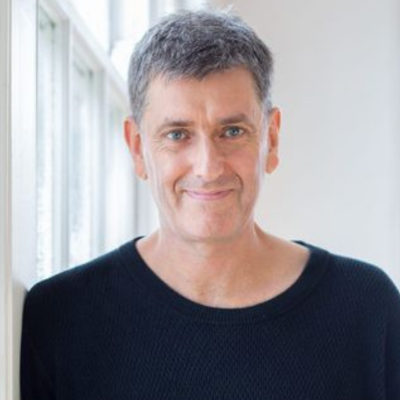 Bill Simpson-YoungChief Executive Officer, Gradient Institute
Bill Simpson-YoungChief Executive Officer, Gradient InstituteSession: Understanding and managing the risks in developing and deploying generative AI
Bill has spent more than 20 years building teams of researchers, software engineers and product designers to develop novel techniques, technologies and products and get these into widespread use. He started as a software engineer and research assistant in machine learning (ML), working on the c4.5 library, one of the world’s first ML technologies used commercially.
He has led R&D for global technology companies (Canon and Unisys) and government-funded research institutions (CSIRO and NICTA) and been on the executive teams of three leading Australian science and technology organisations (CiSRA, NICTA and CSIRO’s Data61).
Most recently, he has been Director of Engineering and Design at Data61 where he led a team of 100 data scientists, engineers, user experience designers and product managers, developing new techniques, technologies and products. This included work in areas incuding ML (including ethically-aware ML), data privacy, computational law, geospatial systems and more.
He designed and taught a Masters course in IT Innovation at University of Sydney for seven years to 2016 covering topics such as technology life cycles, disruptive innovation, open innovation, open source strategies, organisational culture for innovation and innovation ecosystems. He has sat on several government data-related committees influencing approaches to data sharing, data privacy, data analytics and open data as well as advisory groups at two Australian universities. He has degrees in computer science, history of art and cognitive science.
-
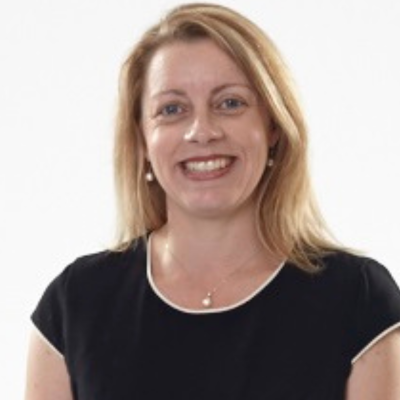 Leanne SiveyerChief Information Officer, Sutherland Shire Council
Leanne SiveyerChief Information Officer, Sutherland Shire CouncilLeanne Siveyer is the CIO at Sutherland Shire Council a position she has occupied for the past two and a half years.
Leanne is passionate about the AI space and the opportunities it presents to improve service delivery to the community. Her aim is for her Council be to educated consumers of AI technology and has encouraged staff to embrace the technology within the appropriate guardrails. Leanne is currently championing a POV (proof of value) initiative using generative AI to support Customer Service staff.
-
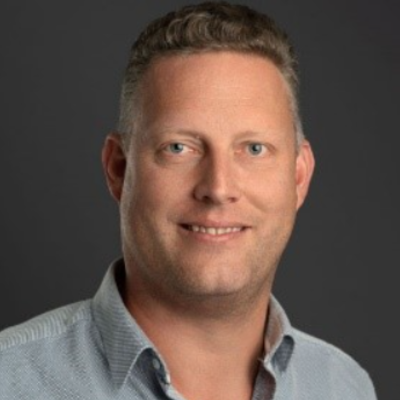 Michael SmedesGeneral Manager & Chief Information Officer, Australian Bureau of Statistics (ABS)
Michael SmedesGeneral Manager & Chief Information Officer, Australian Bureau of Statistics (ABS) -
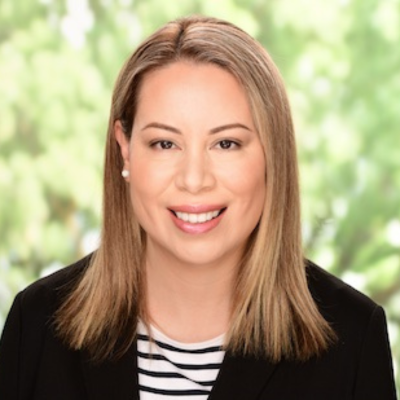 Nattlie SmithBranch Manager - Strategic Insights Branch, National Indigenous Australians Agency
Nattlie SmithBranch Manager - Strategic Insights Branch, National Indigenous Australians AgencyNattlie (Natt) Smith is a proud Wiradjuri woman from Condobolin/Orange in NSW and the Branch Manager for the Strategic Insights Branch, National Indigenous Australians Agency (NIAA). The Strategic Insights branch brings together expertise in data analysis, governance of Indigenous data, evaluation and qualitative and quantitative research related to Aboriginal and Torres Strait Islander peoples and communities. Natt has over 25 years of experience in both government and non-government policy and operational roles across many human service areas. In previous roles for NSW Government, Natt has co-led on Closing the Gap Target 9 Housing and Target 17 Digital Inclusion. Natt is committed to making a positive difference and ensuring the voices of Aboriginal peoples and communities are at the heart of culturally responsive data plans and insights, policy design, program development and the evidence building process.
-
 Andrew SpiegelmanHead of Data & Analytics, Service NSW
Andrew SpiegelmanHead of Data & Analytics, Service NSWSession: Developing conversational AI analytics capabilities to reduce cultural and financial costs
Andrew has been in data science since 2006, before it was even an expression, and his entire career has been in the data industry. He transitioned to data leadership in 2017, having spent 11 years wrangling data and building models. Andrew has led data science and analytics in several industries: the academy, anti-fraud, consulting, financial services, healthcare operations, medical research, phone centres, and the US federal government. Born and raised in New York City, Andrew has lived in Australia since 2020 and intends to stay.
-
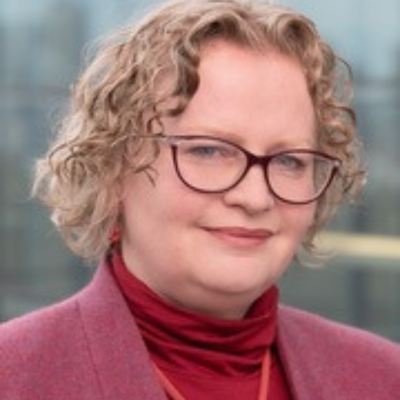 Professor Kimberlee WeatherallProfessor of Law, University of Sydney
Professor Kimberlee WeatherallProfessor of Law, University of SydneySession: Insights from the NSW Ombudsman’s report into generative AI and the public service
Kimberlee is a Professor of Law at the University of Sydney focusing on the regulation of technology and intellectual property law, and a Chief Investigator with the ARC Centre of Excellence for Automated Decision-Making and Society. She is a Fellow at the Gradient Institute, a research institute developing ethical AI, and a research affiliate of the Humanising Machine Intelligence group at the Australian National University, and a co-chair of the Australian Computer Society’s Advisory Committee on AI Ethics. She is the co-host of IP Provocations, a podcast asking challenging questions about IP law.
-
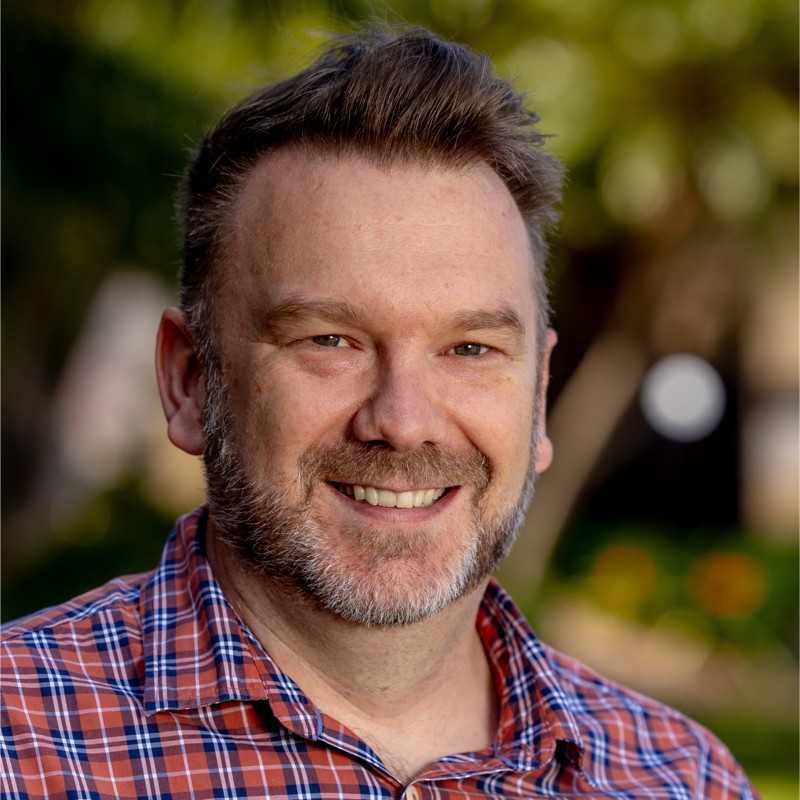 Paul WhiteChief Information Officer, Port Macquarie Hastings Council
Paul WhiteChief Information Officer, Port Macquarie Hastings CouncilPaul White, with 30 years of global IT and senior leadership experience across various industries, is the Chief Information Officer and Head of Customer Service at Port Macquarie Hastings Council. Known for driving transformation and aligning technology with business goals, Paul has successfully implemented numerous strategic initiatives that have enhanced operational efficiency, revenue, and customer experience. He is also a board director of Koala Conservation Australia, where he leads digital initiatives in conservation, focusing on innovative solutions to support wildlife protection and environmental sustainability.
Paul’s extensive experience in both public and private sectors underscores his expertise in leveraging technology to achieve significant business outcomes.
-
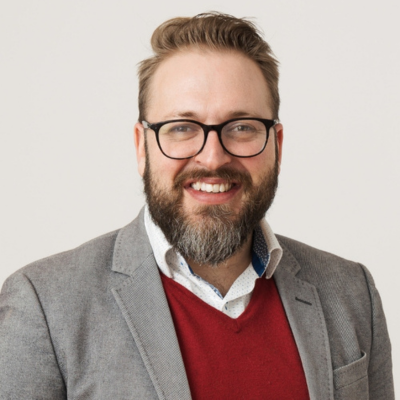 Jules ZanettiCyber Security Manager, SOCO
Jules ZanettiCyber Security Manager, SOCOPanel discussion: Mitigating AI implementation risk in the Australia public sector
Jules is the Cyber Security lead at SOCO with over 10 years of experience leading transformative technology and cybersecurity projects. Throughout his career, Jules has worked extensively with various reputable organisations as a public servant, consultant, and direct contractor.
His roles have covered a wide range of technology aspects including Cloud Services, Network Services, End User Computing, Enterprise Services, and Cyber Security. He has also collaborated with numerous clients to develop technology strategies for complex projects, ranging from guiding technology decisions for large Defence programs and designing a cloud-first strategy for the National Blood Authority, to making cybersecurity technology decisions and leading successful cloud transformations for the National Archives of Australia and NSW Rural Fire Service.
Jules holds a Master of Information Technology and remains committed to advancing his skill set through ongoing professional development and certifications in emerging technologies and cybersecurity trends. His achievements over the years and extensive knowledge in the data and cybersecurity space have earned him recognition as a trusted advisor to senior leaders across government agencies and the private sector.
-
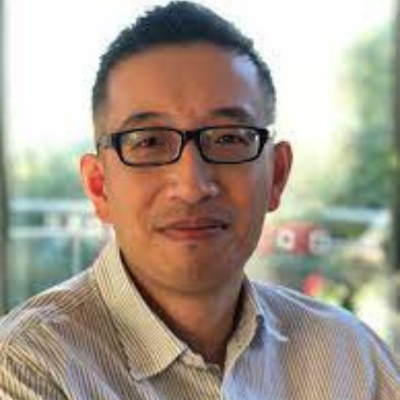 Dr Liming ZhuResearch Director – Software and Computational Systems, CSIRO
Dr Liming ZhuResearch Director – Software and Computational Systems, CSIROSession: Harnessing responsible AI for a fair and effective public service
Dr/Prof Liming Zhu is the Research Director of the Software and Computational Systems division at CSIRO’s Data61. Data61 is part of The Commonwealth Scientific and Industrial Research Organisation (CSIRO) and Australia’s data/AI innovation arm. The division innovates in the area of AI/ML/big data infrastructure, computational and simulation sciences platforms, trustworthy and responsible AI, distributed systems, blockchains, software ecosystems, software engineering/architecture, DevOps, quantum software, privacy and cybersecurity. He is also a conjoint full professor position at the University of New South Wales (UNSW). He is a Graduate of the Australian Institute of Company Directors. He formerly worked in several technology leadership positions in the software industry before obtaining a PhD degree in software engineering from UNSW. He is currently the chairperson of Standards Australia’s blockchain and distributed ledger committee and on AI trustworthiness-related committees. He has supervised more than 20 PhD students and taught software architecture courses at UNSW and the University of Sydney. He has published more than 300 academic papers on software architecture, dependable systems, data/ML infrastructure, blockchain, governance and responsible AI.

Generative AI for Government Summit 2024
29-31 October 2024
Rydges North Sydney | Australia
